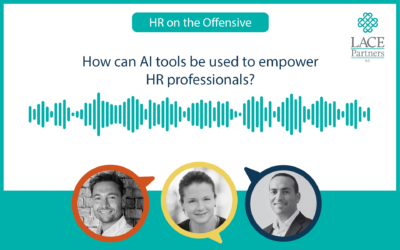As we enter over a month of ‘lockdown’ in which confinement to homes is now the norm, many of us have found that what has transpired over the last month has involved people working harder, longer hours, trying desperately to ensure that we can maintain as much of our old working lives as possible. Some businesses have adopted new ways of working and adapted to new revenue streams, while others have furloughed workers and entered a form of productivity hibernation. It has been a challenging time and for HR professionals it will have been some of the most difficult times of their working lives.
For businesses with large workforces that have been forced into rapid infrastructure changes it has meant long nights and early mornings. Trying to keep pace with the almost daily changes has been a monumental effort.
But now that people are getting in to the ‘new normal’, it is time to realise that the pace of change that we have seen will continue for some weeks and months yet.
What happens when the crisis subsides?
If you have not started asking yourself this question, then you probably should be doing it, now. If some of the assumptions from well respected media sources are true, it will only be a matter of weeks or months, before businesses start to look at transitioning back to ‘business as usual’.
What was ‘business as usual’ (BAU) before has now changed. Forever shifted off its axis.
For HR thesis even more so. For example, are you thinking about what happens to your performance management processes when most employees have returned to normality? Without the same data points to evaluate performance, support will need to be provided to line managers who are implementing performance processes.
What about social distancing in the office? Will you need to consider that?
These are just a few of questions we discussed in a webinar ran on Tuesday this week focusing on creating ‘the new normal’ for HR teams and their businesses. In it we looked at the transition back to BAU. If you’d like to listen to the webinar we have an ‘on demand’ version which you can access here.
We also looked at what the implications are of retaining your home working muscle, as well as learning the lessons of this sudden, sharp, shock to the global economy.
Retaining your home-working muscle
For many organisations simply shifting operations from office to home working was not a simple process. Software and hardware challenges have been a challenge but now that many businesses have adapted to these challenges, the next question is whether it has been appropriate for the workforce to be remotely working, which is a question the HR team need to assess.
Productivity is the key here and that should be the overarching driver behind any decision regarding your remote working policy. Has the change in situation impacted your customers? Has that been positive or negative? What has worked for your employees and what hasn’t? As a HR professional you need to focus on the data – what has that told you in terms of productivity and output from your business? If you are data-driven in your approach, then you will be able to drive the change across your business, as you can evidence potential improvements in productivity, or employee engagement, etc.
Learning the lessons
This is an essential part of your process because it will help you for if/when your business faces a crisis moment. That doesn’t just have to be a global pandemic, but other recessions, or industry-specific issues that could all affect the business. You need to have a critical reflection on what worked for your business in terms of wellbeing, engagement, remote working, etc. HR needs to play an active role in capturing the learning from the business and that has to come from collection of data, analysing the data you have, then a period of reflection to answer questions such as:
- How has this period of crisis affected our culture?
- Have we got the right structure?
- Do we have the right leadership capability in our business?
- How robust was our contingency planning?
Did your contingency plan work and was it fit for purpose? Or was it down to the ingenuity of your people, rather than a systematic plan in place?
These are just a few of the questions that you need to be asking when looking at what could be done differently. Then you need to ask yourself the question how you can put processes in place in future so that when the ‘break glass in case of emergency’ situation occurs again, you are ready for them, whether that is a global pandemic or not.
What next?
In our three webinars we provided an overview of 12 points that we believe are critical to navigating and then thriving when you come out of the current crisis.
But the next step is to start looking at your business and how it has responded to each of those 12 points. If you’d like some help we are offering a free self-assessment tool, as well as a free workshop which can be applied to your business. Just drop us a line or email (info below) and we can help you.
HR teams across every business are still feeling the pressure, and much work remains to do, but with a clear vision and plan, we can collectively navigate the current difficult climate and emerge stronger than ever.
If you’d like to discuss how you are going to adapt to ‘the new normal’ then reach out to us via email at info@lacepartners.co.uk to speak to a member of the team.






